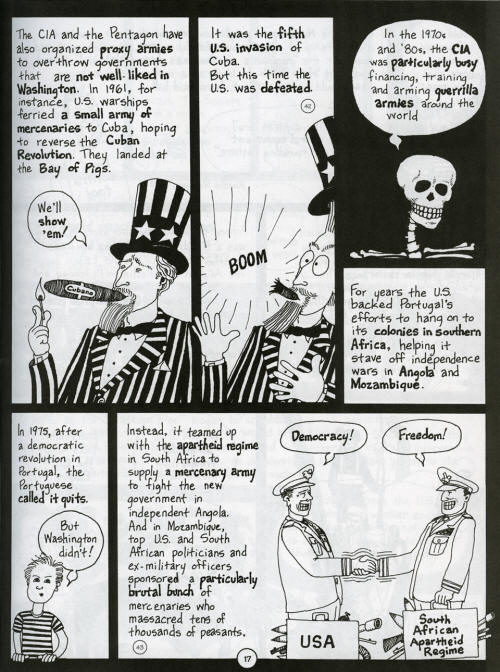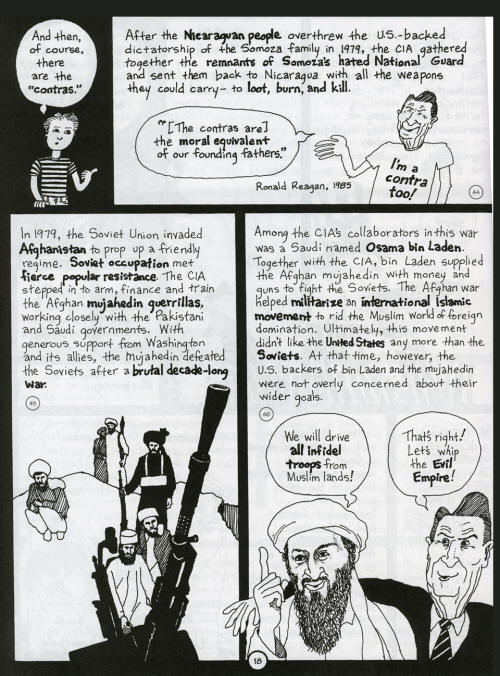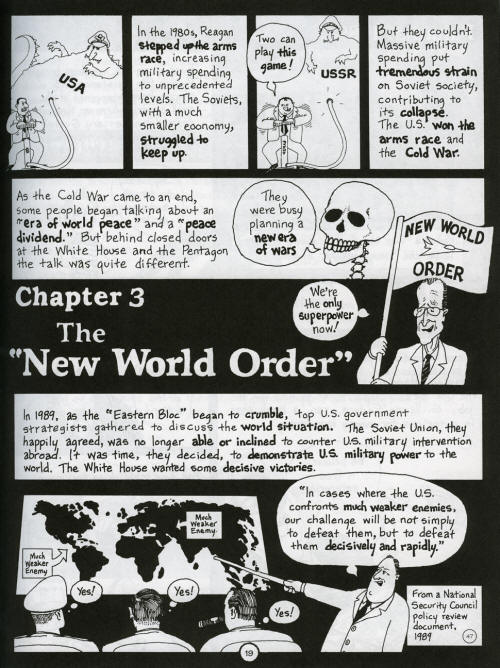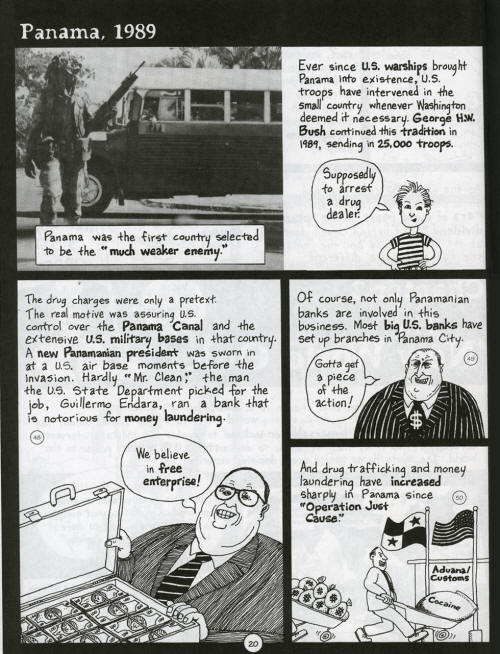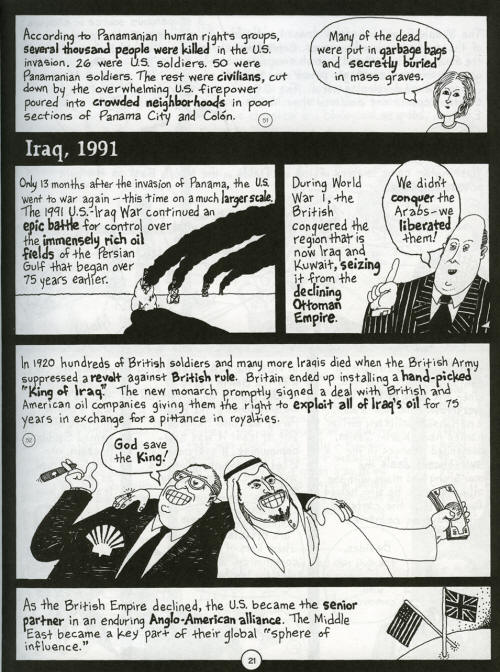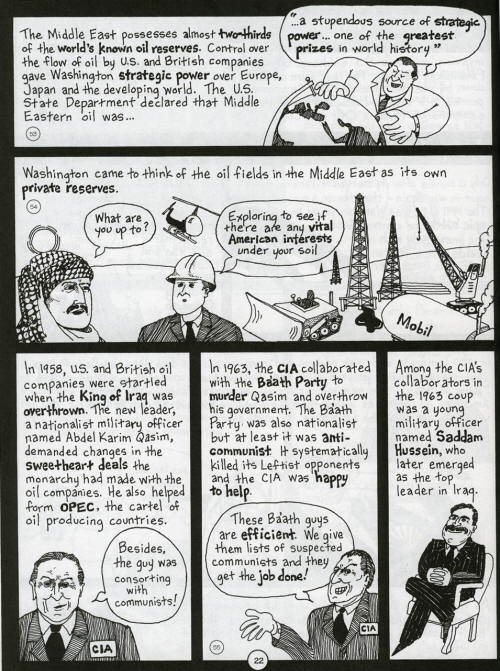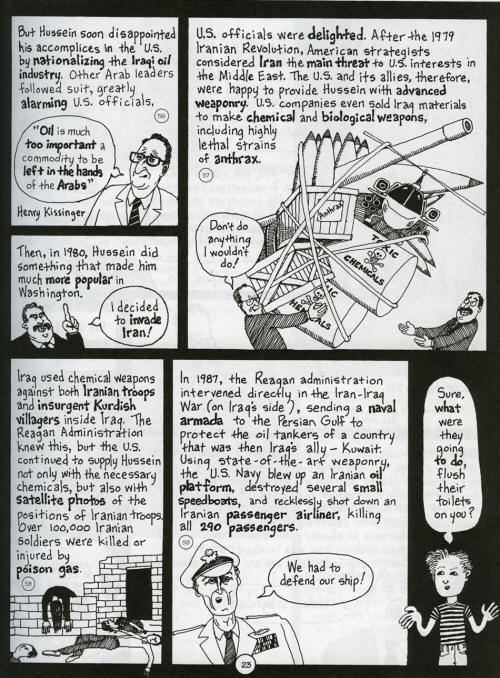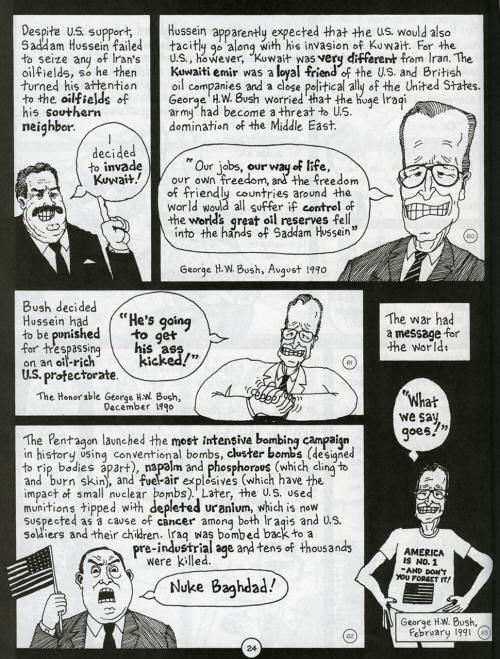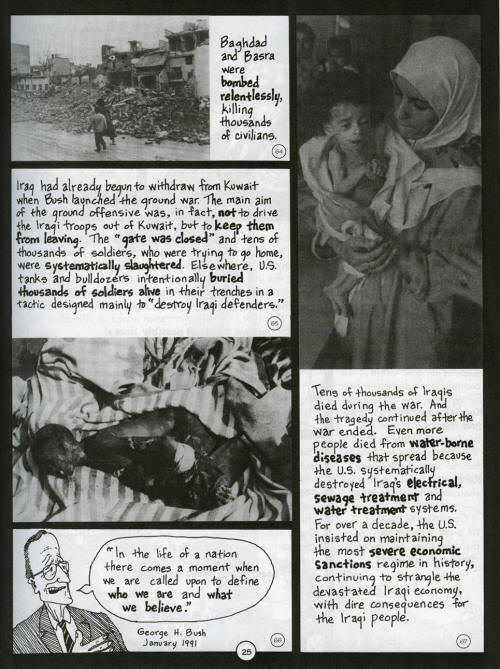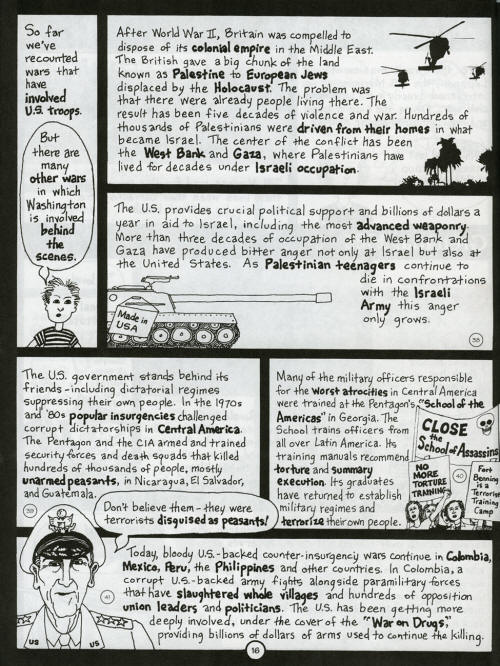
So far we've recounted wars that have involved U.S. troops.
But there are many other wars in which Washington is involved behind the scenes.
After World War II, Britain was compelled to dispose of its colonial empire in the Middle East. It decided to give a big chunk of the land known as Palestine to European Jews displaced by the Holocaust. The problem was that there were already people living there. The result has been five decades of violence and war. Hundreds of thousands of Palestinians were driven from their homes in what became Israel. The center of the conflict has been the West Bank and Gaza, where Palestinians have lived for decades under Israeli occupation.
The U.S. provides crucial political support and billions of dollars a year in aid to Israel, including the most advanced weaponry. More than three decades of occupation of the West Bank and Gaza have produced bitter anger not only at Israel but also at the United States. As Palestinian teenagers continue to die in confrontations with the Israeli Army this anger only grows. [38]
The U.S. government stands behind its friends--including dictatorial regimes suppressing their own people. In the 1970s and '80s popular insurgencies challenged corrupt dictatorships in Central America. The Pentagon and the CIA armed and trained security forces and death squads that killed hundreds of thousands of people, mostly unarmed peasants, in Nicaragua, El Salvador, and Guatemala. [39]
Don't believe them--they were terrorists disguised as peasants!
Many of the military officers responsible for the worst atrocities in Central America were trained at the Pentagon's "School of the Americas" in Georgia. The School trains officers from all over Latin America. Its training manuals recommend torture and summary execution. Its graduates have returned to establish military regimes and terrorize their own people.
CLOSE the School of Assassins.
NO MORE TORTURE TRAINING.
Fort Benning is a Terrorist Training Camp. [40]
Today bloody U.S.-backed counter-insurgency wars continue in Columbia, Mexico, Peru, the Philippines and other countries. In Colombia, a corrupt U.S.-backed army fights alongside paramilitary forces that have slaughtered whole villages and hundreds of opposition union leaders and politicians. The U.S. has been getting more deeply involved, under the cover of the "War on Drugs," providing billions of dollars of arms used to continue the killing. [41]

